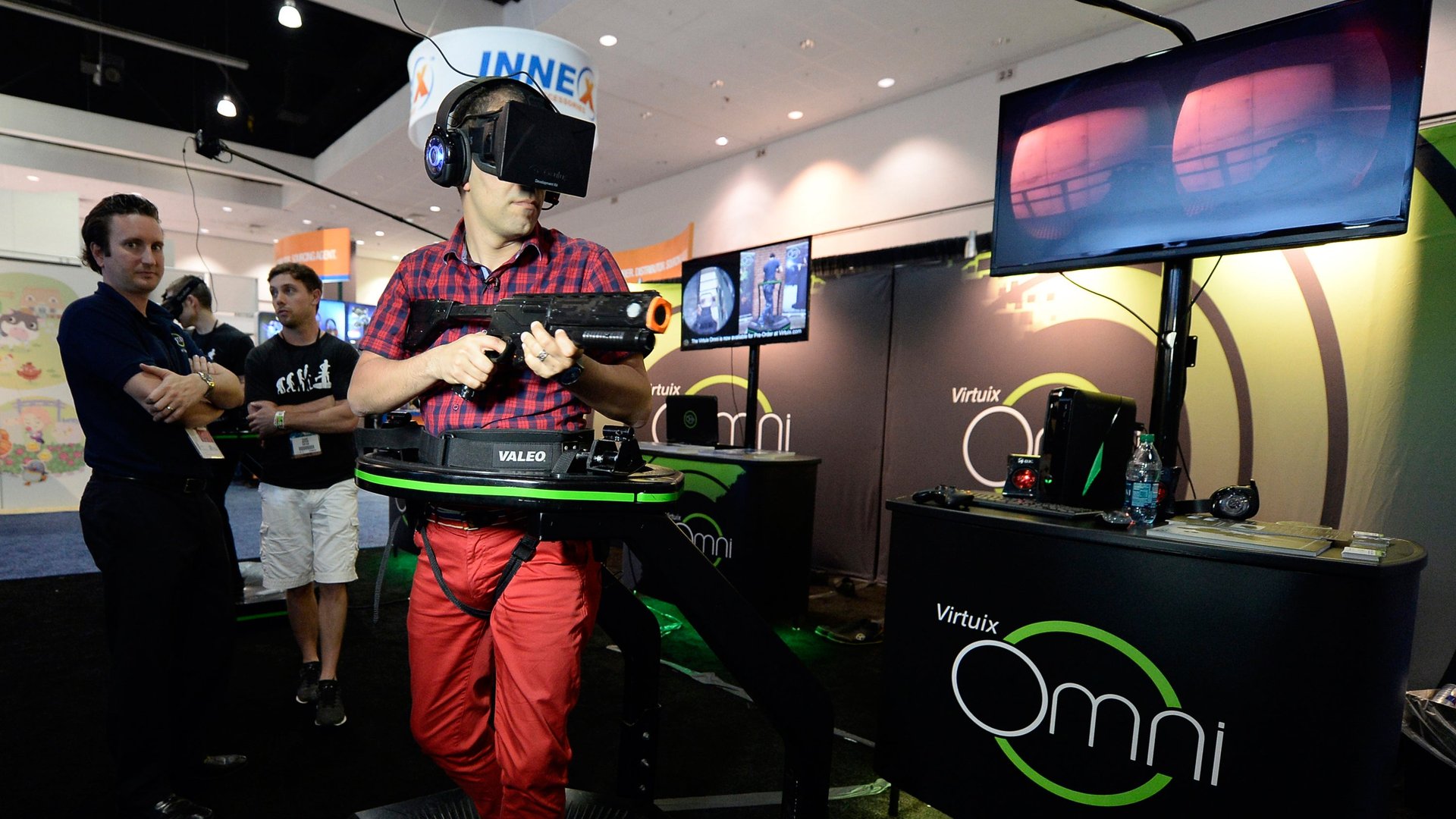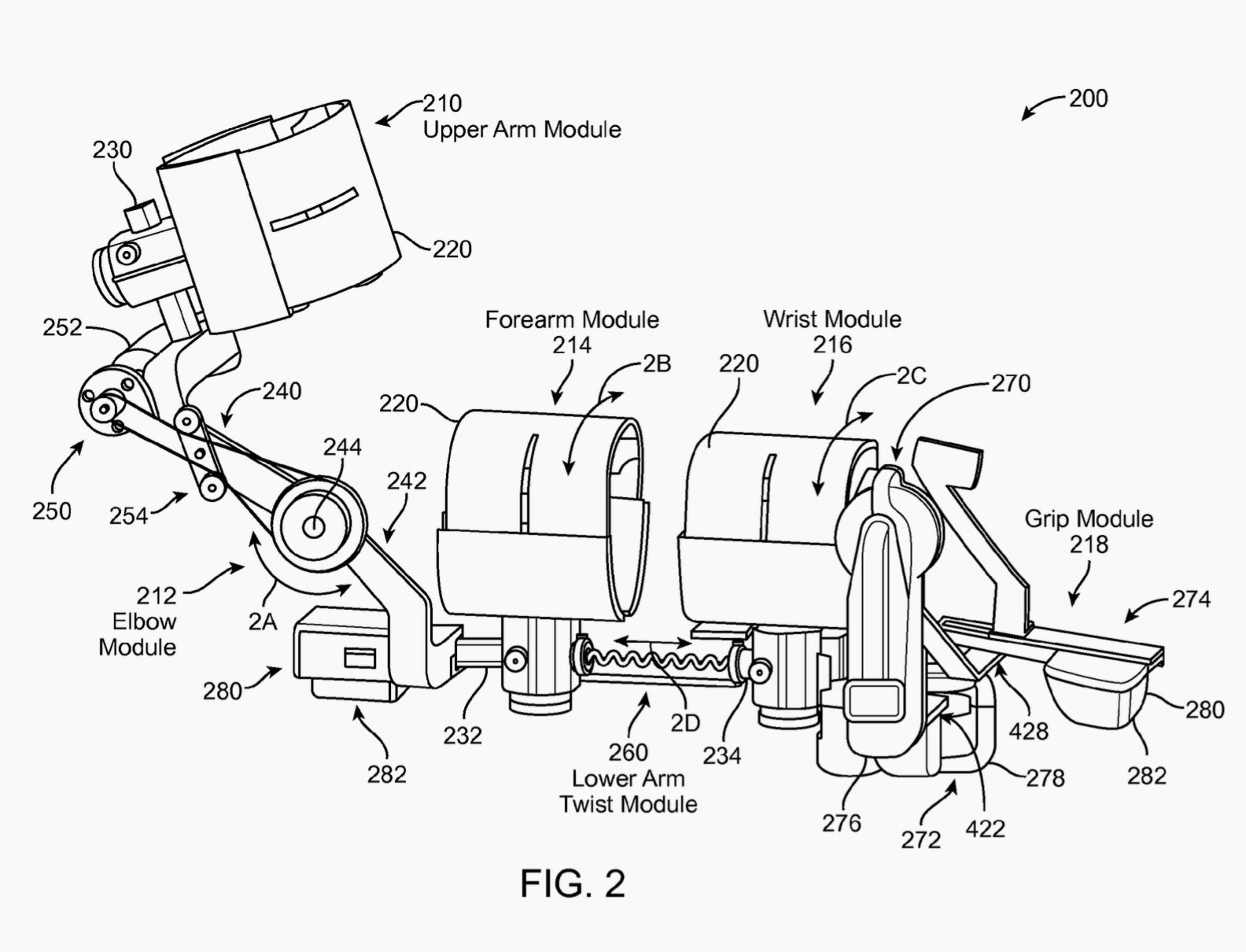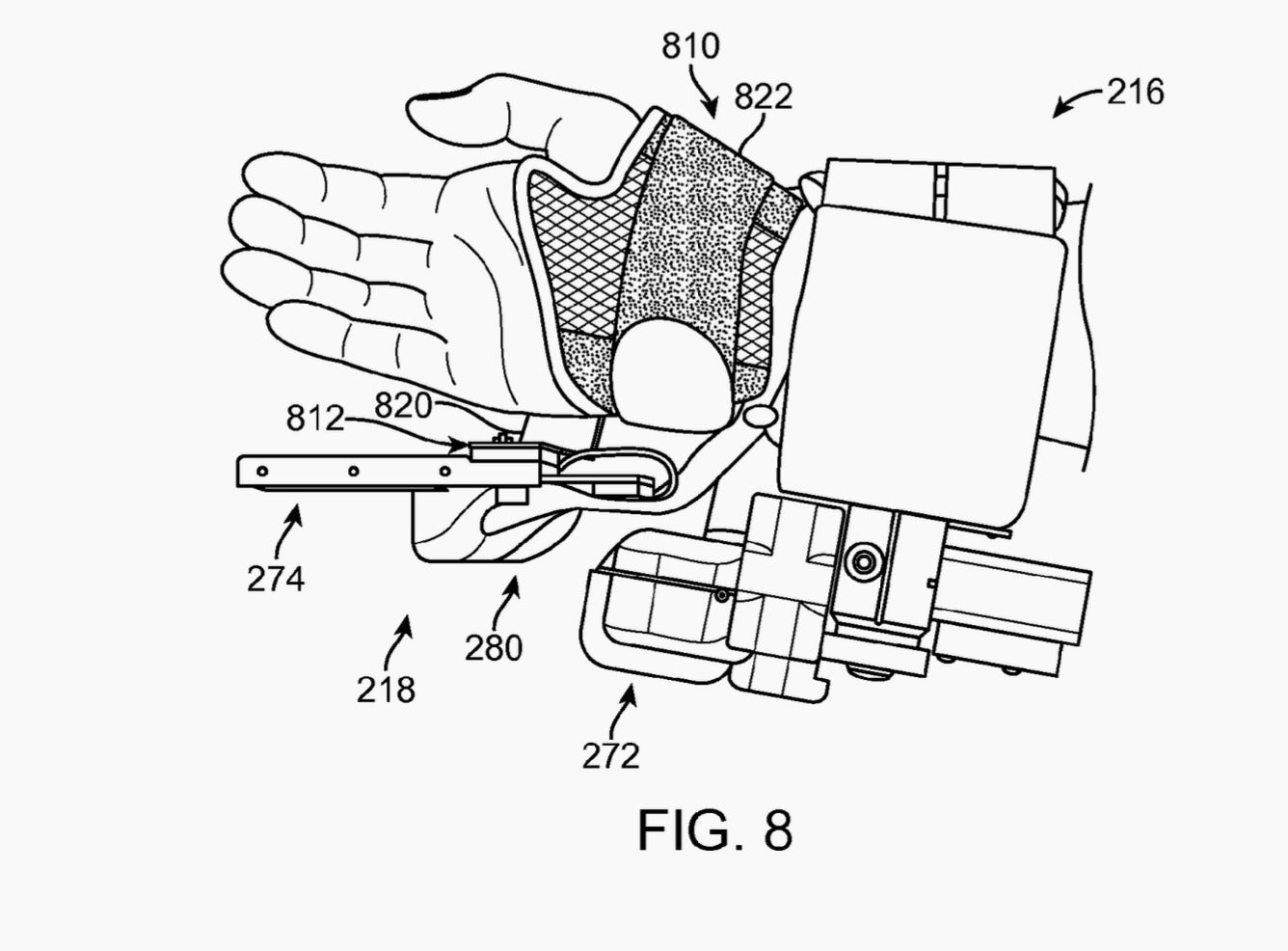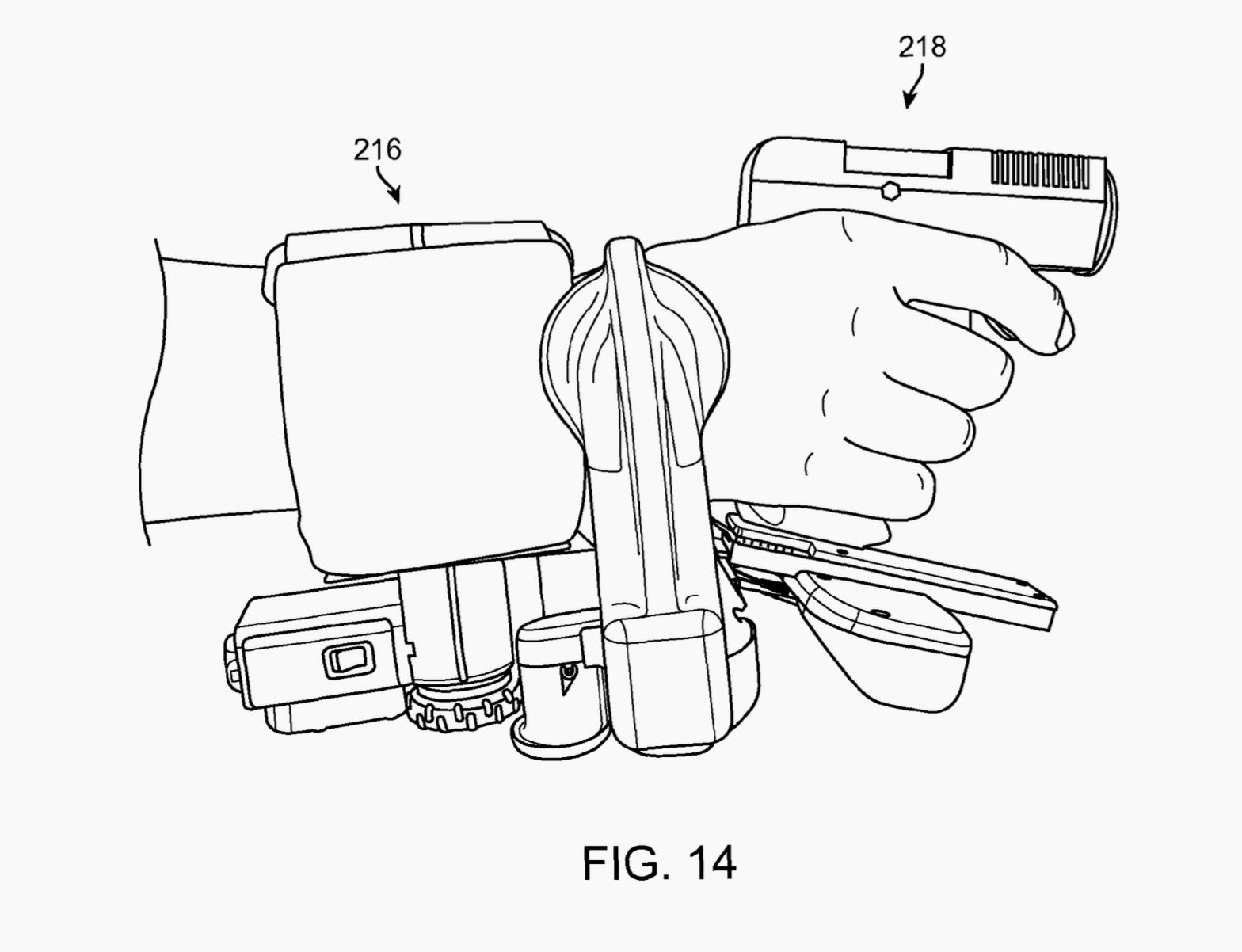Facebook wants to build this crazy arm controller to make VR even more realistic
This week, Facebook started shipping the first of its long-awaited Oculus Rift virtual reality headsets, but it may well have more VR technology up its sleeve—or, on top of it.


This week, Facebook started shipping the first of its long-awaited Oculus Rift virtual reality headsets, but it may well have more VR technology up its sleeve—or, on top of it.

A patent published Mar. 29 shows that Facebook has acquired the rights to develop an arm-mounted controller that can be used for virtual reality games. The patent outlines a product that can track the movements of the wearer’s arm, and provide feedback based on their actions and what’s going on in the game. Think of the vibration capabilities in a modern video game controller, but on your body.

According to people with knowledge of the situation, Facebook acquired the patent from Novint Technologies, a company that makes input devices for computers. Novint has been working on a product called the XIO, that looks a lot like the product in Facebook’s new patent, for at least the last five years. It has not yet released the XIO, and Novint wasn’t immediately available to comment on the status of its prototype.
But from early designs, it appears that the XIO would give gamers the ability to grasp real-world objects and control them in simulations. This could be a fake gun for an immersive first-person shooter game, or perhaps a military training program, as the early prototype video suggests.

While there’s no guarantee that Facebook is working on turning this prototype into a working piece of hardware—and a Facebook representative told Quartz that products can’t be inferred from the patents it holds—it could prove an interesting addition to its burgeoning virtual reality presence. The Rift currently ships with a small remote and an Xbox controller, but later in the year, Oculus is planning to launch Touch, a set of handheld controllers to bring a modicum of realism into the way users can control virtual scenarios.
A more involved setup like the XIO could further immerse a VR users into their game or world—offering a way to feel the touch of others or the feedback of digital objects. Pair that with other add-ons for the Rift, like the Virtuix Omni—like an adult playpen that tracks movement—and you could soon have a gaming system just short of going outside and actually doing the things you’re simulating. (Which, when it comes to deadly military simulations, might not be the worst thing.)
Hopefully, however, as video games and virtual reality become ever more realistic, we won’t get into situations like those portrayed in science fiction. Because remember—the body can’t live without the mind.